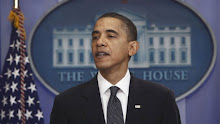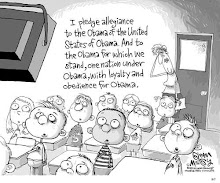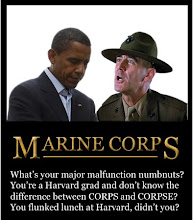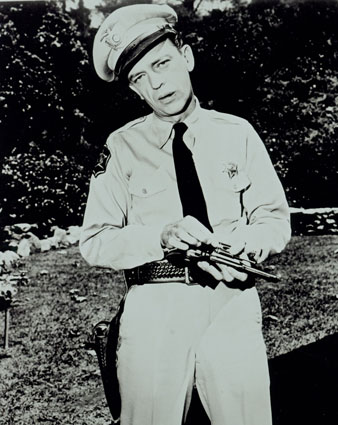The following is an Associated Press story: Cops Getting Caught on Camera Increases Scrutiny Associated Press The same cell phones, surveillance cameras and other video equipment often used to assist police are also catching officers on tape, changing the nature of police work -- for better and worse. print email share recommend (2) CHICAGO - Minutes after a suburban Chicago police officer was charged with striking a motorist with his baton, prosecutors handed out copies of a video showing the beating -- taken by a dashboard camera on the officer's own squad car. In California, after a transit cop and an unruly train passenger slammed against a wall during a struggle and shattered a station window last fall, video from a bystander's cell phone was all over the Internet before the window was fixed. The same cell phones, surveillance cameras and other video equipment often used to assist police are also catching officers on tape, changing the nature of police work -- for better and worse. Some say cameras are exposing behavior that police have gotten away with for years. But others contend the videos, which often show a snippet of an incident, turn officers into villains simply for doing their jobs, making them targets of lawsuits and discipline from bosses buckling to public pressure. "We tell our officers all the time you've got to assume that everything you do is going to be videotaped," said Chicago Police Superintendent Jody Weis. "Everyone has a cell phone and almost every cell phone has a camera." Cook County State's Attorney Anita Alvarez said the video her office gave to the media on Tuesday shows police officer James Mandarino, from the Chicago suburb of Streamwood, hitting motorist Ronald Bell 15 times after a traffic stop last month. In the video, Mandarino is seen firing a Taser at a passenger in the car and then striking Bell, who is on his knees with his hands on his head. Bell suffered a concussion and cuts that required seven stitches. "It's a wonderful tool," Alvarez said of the video, which she says suggests that both men posed no threat to the officer. Though police-behaving-badly videos have become popular staples of cable news shows and the Internet, Weis said he doesn't believe his officers are overly cautious out of fears they'll be videotaped -- and their superiors are not advising them to be. Quietly, though, some officers say the prospect of being videotaped makes them hesitate even if they know they should act. "I've heard from officers who are sent to break up a fight in the street and see a group of people leaning out windows with handheld video cameras ... they go slower and are less aggressive," said Tom Needham, a Chicago attorney who has represented several police officers. But University of Chicago law professor Craig Futterman, who has studied police brutality, said videos are helping hold police accountable. "My own view is that YouTube has done more to expose the reality of police abuse than all the blue-ribbon commissions combined," said Futterman. A Chicago police officer who was arrested three years ago in the videotaped beating of a female bartender never would have been charged much less convicted if not for the video, Futterman said. Anthony Abbate initially was charged with a misdemeanor until the video played across the world. Ronald Bell's brother, Stacey Bell, said he doubts the Streamwood officer would have been charged with felony aggravated battery and official misconduct without the video and his brother still would have faced charges of drunken driving and resisting an officer, which were dropped. "I believe it would have been six witnesses against an officer and it would have been a different story," said Stacey Bell, who witnessed the alleged beating. The officer's attorney declined to comment. But some caution that incidents caught on tape can misrepresent police work. "The work of a police officer, even when done properly is ... not pleasant to watch," said Al O'Leary, spokesman for the Patrolmen's Benevolent Association in New York City. "We've had situations, circumstances where an officer doing his job by the book is caught on video is tagged as brutal. Sometimes the work is brutal but necessary." In California when the Bay Area Rapid Transit officer slammed into a window with a suspect during a violent arrest, the cell phone video -- viewed more than 160,000 times on one clip posted on YouTube -- ended up exonerating the officer whose actions brought claims of excessive force, a union official said. "It wasn't the suspect's head that caused the glass to break," said Jesse Sekhon, BART police officers union president. "When you freeze the video and enhance it you see it was the suspect punching it with his hand." What's more, video viewers rarely hear the frantic 911 call for help, rocks hurled at an approaching squad car or the countless times police have been called to the same house. In New York City in 2008, a man died after falling from a building ledge when police jolted him with a Taser. Video of the last few moments, including Iman Morales' fall, was posted on newspaper Web sites and played over and over again on local TV. But before the cameras were running, "this guy was stark naked, running up and down the fire escape, he tried to get into a woman's apartment by tearing out the air conditioner, terrifying the woman," and swung a fluorescent light bulb at police before Lt. Michael Pigott ordered him shot him with the stun gun, said Tom Sullivan, president of the NYPD's Lieutenants Benevolent Association. Eight days later, Pigott -- stripped of his gun and badge and demoted -- committed suicide, leaving a note saying he was trying to protect his men. His widow, who is suing the police department, said the discipline humiliated her husband. The department declined to comment. There is little chance that the videotaped scrutiny of police will slow. In fact, groups with video cameras follow police in cities all over the country, including Orlando, Fla., where George Crossley launched Orlando CopWatch in 2006. "If we come up on law enforcement, the whole shift knows immediately," said Crossley. "They get on the radio (and say) 'Watch out for CopWatch."' ______________________________________________
As someone who knows first hand the abuse of police power and how *some* police officers will lie through their teeth on a police report, lie under oath in a courtroom and has experienced gross abuse of power by police officers and prosecutors who will lie to a grand jury, I believe I can put my two cents worth in.
All police officers aren't bad; just as all police officers aren't good. All citizens aren't bad and all citizens aren't good. The problem comes when you have a police officer who has an "us and them" mentality that assumes and acts on their view that, "You aren't one of us, so you're one of them and I'm going to treat you like a criminal -- even if I find out that the facts show otherwise."
I also wouldn't want to be a cop who tries to do their job and has the ACLU and every other organization trying prosecute them for doing their job *and* tries to get a criminal off who has had no fewer than 37 witness who watched him do it and an signed confession.
I also learned the hard way that just because a person takes a plea-bargain, it doesn't mean they're necessarily guilty. As my attorney put it, "Of course you're innocent, but it's a roll of the dice and your public defender didn't even bother to force the State to show that you even broke a law or what that law was. The jury will probably believe they would never be in your shoes and they believe you must have done something or you wouldn't be here.
If you lose the roll of the dice, you're looking at 4-7 years of hard time for not even breaking a law. You just stepped on the wrong toes. I would advise against rolling the dice. If you take a plea, you'll get probation."
Ok, if you have a wife and family, are you going to take the plea -- even if you're innocent? Things aren't always what they seem. Oh, and by-the-way, the court of appleals ruled my public defender was incompetent. Didn't change anything, though. I digress. Catching bad cops lying and abusing their power is a good thing. They need to be exposed. It's also a good thing if they receive recognition for the good things they do, as well.
Subscribe to:
Post Comments (Atom)






No comments:
Post a Comment